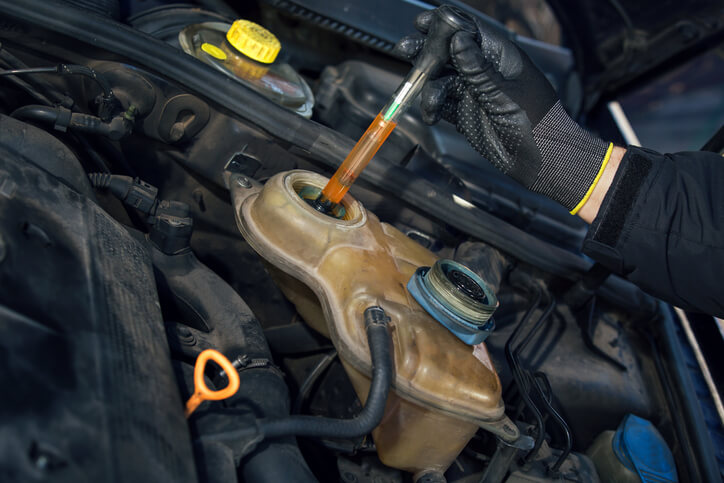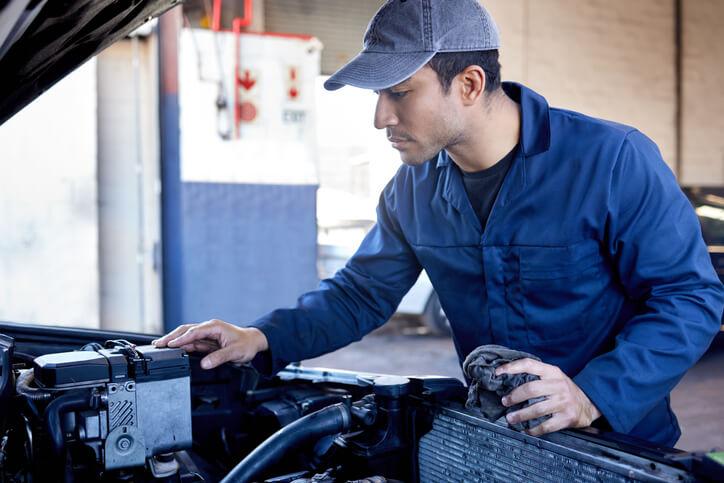Understanding Overheating in Modern Engines: Beyond the Basics
Engine overheating has always been a concern for drivers, but with modern vehicles, the causes and consequences are more complex than ever. Advanced auto mechanic engine technology, tighter design tolerances, and integrated cooling systems mean that diagnosing overheating isn’t as straightforward as it once was.
If you’re training to become a mechanic, gaining a deeper understanding of engine temperature control is essential for protecting today’s vehicles from serious and costly damage.
What Happens When an Engine Overheats?
At its core, engine overheating occurs when the engine’s temperature exceeds the ideal operating range. This can result in:
- Warped cylinder heads
- Blown head gaskets
- Cracked engine blocks
- Coolant loss and pressure buildup
The symptoms might include steam under the hood, dashboard warning lights, or poor engine performance. But in many modern vehicles, subtle signs may appear long before the engine visibly overheats. That’s why diagnostic precision is so important for auto mechanic professionals.
Common Causes of Overheating in Modern Vehicles
In today’s vehicles, the causes of overheating go well beyond low coolant levels. Auto mechanic school students must learn to look for a variety of potential culprits, including:
- Failing electric radiator fans
- Clogged or corroded radiators
- Faulty thermostats
- Coolant leaks from hoses or water pumps
- Blocked or degraded heater cores
- Air pockets in the cooling system after service
Electronics also play a larger role. For example, modern vehicles often use control modules to regulate fan speeds and cooling system performance. If a sensor sends the wrong signal, the cooling system may underperform, even if all components are in good condition.

Why Modern Engines Are More Vulnerable
Today’s engines are more efficient but often operate at higher baseline temperatures to meet emissions and performance standards. They also use lighter materials like aluminum, which are more sensitive to heat damage. Additionally, downsized engines with turbochargers can generate more heat than older, naturally aspirated engines.
Auto mechanic students learn how these changes affect thermal regulation and how to troubleshoot problems in systems that are more integrated and less forgiving than in the past.
Auto Mechanic Diagnostic Tools and Techniques
At ATC Surrey, students get hands-on training in both basic and advanced cooling system service. They learn to:
- Use infrared thermometers and scan tools for temperature readings
- Pressure test radiators and caps
- Identify leaks with UV dye
- Perform coolant flushes and air bleeds
- Evaluate sensor data from engine control units (ECUs)
This practical experience helps students build confidence in diagnosing overheating issues accurately and efficiently, skills highly valued in repair shops and dealerships.

Prevention and Customer Education
Mechanics do more than fix problems, they educate clients. Part of a technician’s role is to explain why overheating happens and how to prevent it. During automotive training, students are encouraged to:
- Recommend regular coolant checks and flushes
- Highlight warning signs drivers shouldn’t ignore
- Emphasize the risks of driving with a compromised cooling system
Clear communication can help customers avoid major engine damage and foster trust between technicians and vehicle owners.
Start Your Auto Mechanic Career With ATC Surrey
Engine overheating issues are becoming more common and more complicated. That’s why it’s important to choose a program that addresses both foundational knowledge and modern diagnostics. Automotive training at ATC Surrey prepares you to handle these challenges with professionalism and confidence.
As a trained auto mechanic, you’ll be able to recognize subtle symptoms, apply targeted solutions, and keep vehicles running safely and efficiently, no matter the temperature under the hood.
Are you looking for comprehensive automotive training?
Contact ATC Surrey for more information.


